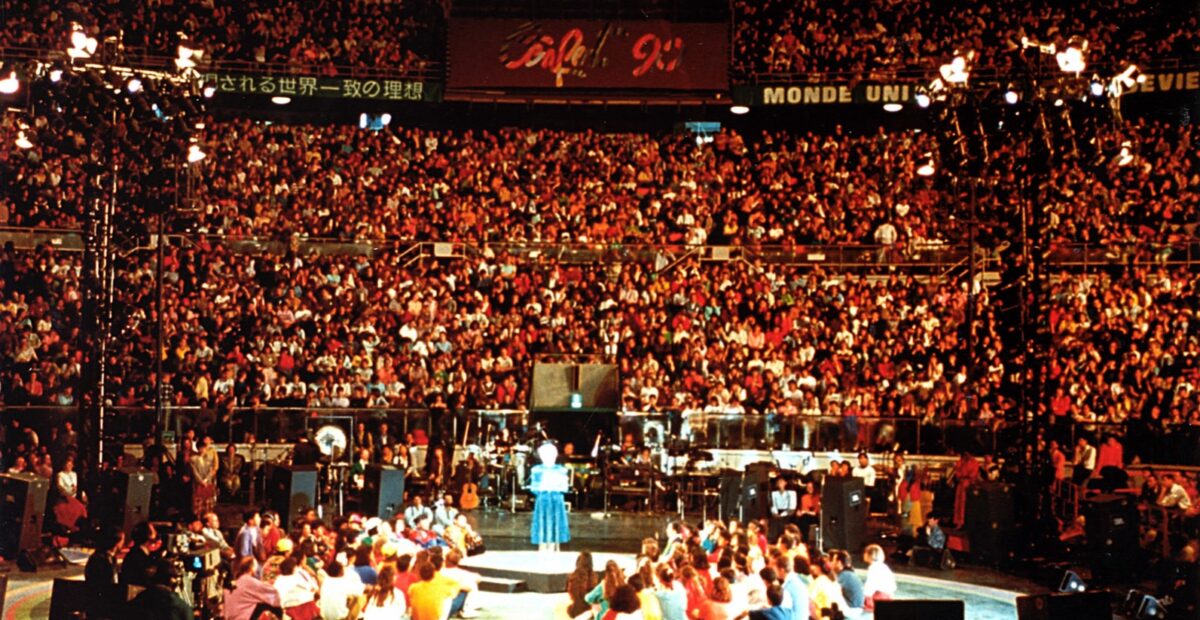
Watch
Aurelio Molé: the importance of the 1990 Genfest (and all Genfests)

We still have at heart the recent Genfest at Aparecida in Brasile, a fantastic experience that we tried to narrate to our readers through different articles and will continue to do with news and testimonies from those who also, from the editorial staff of the Unitedworldproject.org lived the event themselves. At the same time, we are collecting voices of those who lived other Genfests in the last years: Valerio Gentile’s interview, who offered us his memories of the first Genfest ever, that of 1973. To Aurelio Molè, instead, journalist, television author and professional counselor whom we asked to talk about the one in 1990, the first Genfest after the fall of the Wall of Berlin. He answered us with precious reflections, as well as spoke generally about the value of the Genfest.
The Genfest have always had a strong prophetic energy, the capacity to convey the normality of good against the habit of evil always present in the world and predominant in the media world.
Well included that of 1990…
The Genfest of 1990 with 20 thousand youth present at Palaeur, Rome coming from five continents and 76 nations with other 16 countries connected via telephone, and others via satellite, was already an experience of fraternity of a more united world of girls and boys that already worked on the building of a different planet. The historic contingent news of those times was the fall of the wall of Berlin and of the totalitarian regimes of the countries of the east. Something unthinkable, so abruptly it happened. A healed fracture of Europe.
What has a meaning for you?
My whole generation, I was 27 years old then; it was born, it lived and grew in a climate of the cold war rearmament, fears of a third world war. I had never met youth from the Eastern countries, and even the subsequent World Youth Day in 1991 in Częstochowa, Poland, was, along with the Genfest the occasion to meet, talk, greet for the first time youth coming from Lithuania, Poland, Czechoslovakia, the former Yugoslavia, Romania, etc. It was as if they appeared from another planet. They appeared the same yet different from us.
In what sense?
The same as they wanted to live the same ideals as ours. Different as they were not contaminated by consumerism and by the oriental individualism. They would still conserve a purity and an innocence that the Oriental world lost. You would notice the beauty of their souls at their original state. A united world would not seem an aspiration anymore and the title of the 1990 Genfest was: “Ideal that becomes History” would become real, concrete. A portion of a united world already existed, it was visible and contagious. And there was a consonance and an endorsement, a very authoritative endorsement in John Paul II who said the united world “is the great expectation of people today, the hope and, at the same time, the great challenge of the future” because “it is the way to peace.”
Important words…
Words ever truer in a world that is living a third world war in pieces. The pathway of dialogue, of the diplomacy, of listening, of comprehension is the only way of survival of the planet.
How much relevance was that Genfest given exactly in relation to the fall of the wall of Berlin? What impact did this historic event have on those days?
The impact on the media was significant with articles, directs, interviews and surely brought a gush of fresh air, of joy and hope. The real impact is not measurable as, then, what it produced in the life of all those youth is difficult to quantify. Surely it seemed like a scientific discovery.
Even here I ask you to explore….
When Alexander Fleming discovered in 1928 the penicillin giving way to the birth of the antibiotics, its importance was to be able to reproduce the pharmaceutical. The workshop on a more united world gave way to the birth of many initiatives, associations, work on the territory that are alive. Till today.
Inside and outside of the Focolare Movement?
It doesn’t matter if they belong directly to the Focolare, but they conserve that open spirit, of inclusivity, of concrete love that was assimilated in this Genfest. In my experience it also meant having opened a doorway to counselling last year, a space for active listening and support to all. A relation of help to overcome moments of personal and couple difficulties. However, it is never too late to open up to one’s territory, to understand others needs and to try to do whatever one can. The process of a more united world starts also from within, from how to care for the others.
I read this sentence from a testimony of the Genfest: “A mandate was addressed to all: to bring love back into the world. “Friendship or benevolence is not enough,” Chiara Lubich told us, “Philanthropy, solidarity or nonviolence are not enough. It is necessary to transform ourselves from men focused on our own interests to little everyday heroes in the service of our brothers and sisters.” Would you like to comment on this sentence?
Our model of hero, often, is the Olivetan one. A protagonist who alone can overcome some obstacles and crisis to reach some dramaturgical goals, conscious and unconscious. At Genfest we learn that not only does love have to be concrete, with muscles, personal, but it can be done together, in the logic of us, of fraternity, of a collective hero myth. In an age of individualism and fragmentation and digital loneliness, all it takes is two people to come together, in the name of Jesus.
Beyond the differences….
Age, culture, background doesn’t matter for one to be able to do something useful for others. It is not the big business that makes the difference, but rebuilding the social fabric, the communities, from below, from ordinary life, in one’s relationships, at work, in the neighborhood. The direction was indicated by Chiara Lubich in “A City Is Not Enough” in which she calls for taking the measure of the city to seek out the poor, the abandoned, the orphaned, the imprisoned so as not to leave anyone alone and always give “a word, a smile, your time, your possessions” and share everything “moments of joy and victory, of pain and failure, so that the light will not go out.” “But “one city is not enough”: yes, with God, one city is too little. He is the one who made the stars, who guides the destinies of the ages, and with Him we can aim farther, to everyone’s homeland, to the world. Let our every breath be for this, for this our every gesture, for this our rest and walk. In the end, let us make sure that we do not have to regret having loved too little.






